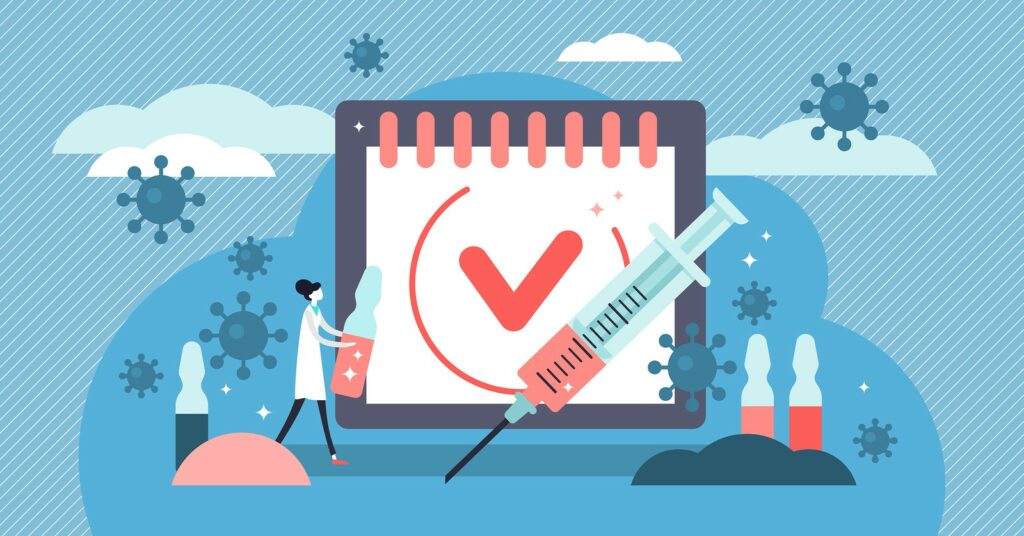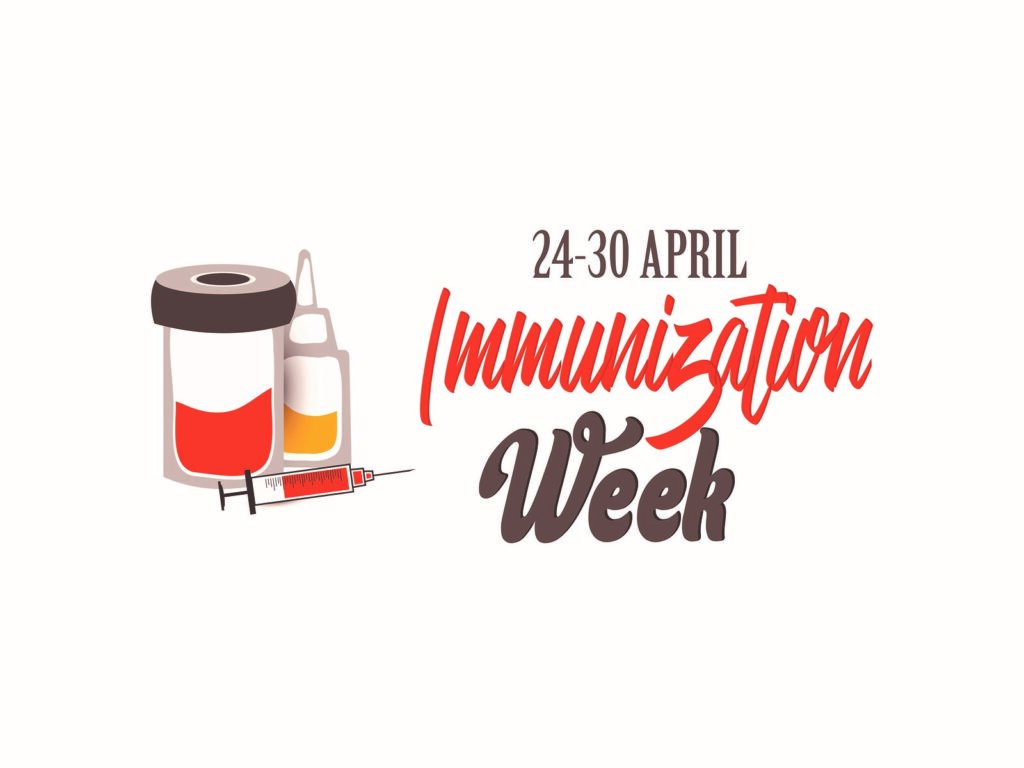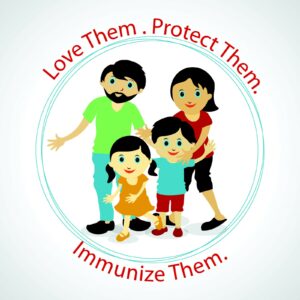
World Immunization Week is always celebrated in the last week of April (April 24-30) with a goal to promote the use of vaccines to protect people of all ages against disease.
Immunizations save many lives every year and are recognized as one of the world’s most successful, cost-effective interventions. However, there are still nearly 20 million children in the world, who are still not able to get the vaccines they need or require. Alternatively, there are parents who choose not to vaccinate their children for personal or religious reasons and this reluctance often stems from misconceptions about vaccines, or complacency about the likelihood of getting infected. (Unicef, 2019)
That’s why staying informed about the benefits of vaccines – and the risks of not getting vaccinated – is more important than ever.
The theme this year is #VaccinesWork forAll and the campaign focuses on how vaccines and the people who develop, deliver and receive them are heroes by working to protect the health of everyone, everywhere. (WHO, 2020)

Why Immunization Is Important And Matters
Immunization is one of mankind’s most significant achievements. It saves around 3 million lives worldwide each year and helps to prevent outbreaks.
Vaccines are a part of a healthy lifestyle at all ages. They protect individuals and the rest of the community. They help prevent the spread of disease and protect people who can’t get vaccinated. That includes babies and people with immune deficiencies. Even if you get sick after getting vaccinated, it is harder for the disease to spread. (Courier-Herald)
Despite knowing, some people still think that immunization is only for infants and young children, but that’s far from the truth—adults need vaccines too. Nearly 50,000 adults in the United States die from vaccine-preventable infectious diseases or their complications each year.
This month, please join us in raising awareness of the power of prevention as we recognize World Immunization Week during April 24-30.
As adults as young as 50 get older, their immune systems decline, leaving them more susceptible to infectious diseases, like pneumococcal pneumonia, a type of pneumonia. Pneumonia is a leading cause of death in the United States. Yet, despite increased personal risk, many adults aren’t vaccinated. (NANASP Org)
Even if you received the vaccines you needed as a child, the protection from some vaccines can wear off. You may also be at risk for other diseases due to your job, lifestyle, travel, or health conditions. Find out what vaccines you may need based on different risk factors. (CDC Page)
Are Vaccines Safe?
Vaccines are tested and monitored.
Vaccines go through years of testing before the Food and Drug Administration (FDA) licenses them for use. Both the CDC and FDA continue to track the safety of all licensed vaccines.
Vaccine side effects are usually mild and go away in a few days.
The most common side effects include soreness, redness, or swelling where the shot was given. Severe side effects are very rare.
Vaccines are one of the safest ways to protect your health.
Talk with your doctor about the vaccines you should safely receive based on your health or other conditions.
So What Can You Do?

- Make sure your family is up to date on vaccines. Talk to your healthcare provider.
- Get vaccinated on time. It is best to go to your healthcare provider. You can also go to a children’s immunization clinic or a place that offers vaccines for adults who don’t have insurance.
- Be a vaccine champion! Talk to your friends and family.
- Only share reliable information, like info from your healthcare provider or the Health Department.
Works Cited
“World Immunization Week 2020.” World Health Organization, World Health Organization, https://www.who.int/news-room/events/detail/2020/04/24/default-calendar/world-immunization-week-2020.
“World Immunization Week 2019.” UNICEF, 17 Apr. 2019, https://www.unicef.org/immunization/immunization-week.
Service, Wire. “Celebrating Success and Recognizing Challenges during World Immunization Week: Tacoma-Pierce County Health Department: Courier-Herald.” Courier, Courier-Herald, 29 Apr. 2019, https://www.courierherald.com/life/celebrating-success-and-recognizing-challenges-during-world-immunization-week-tacoma-pierce-county-health-department/.
“World Immunization Week – April 24-30.” World Immunization Week – April 24-30 | National Association of Nutrition and Aging Services Programs, https://www.nanasp.org/node/54.
“Recommended Vaccines for Adults.” Centers for Disease Control and Prevention, Centers for Disease Control and Prevention, 21 Nov. 2019, https://www.cdc.gov/vaccines/adults/rec-vac/index.html.
“Reasons for Adults to Be Vaccinated.” Centers for Disease Control and Prevention, Centers for Disease Control and Prevention, 2 May 2016, https://www.cdc.gov/vaccines/adults/reasons-to-vaccinate.html.
















